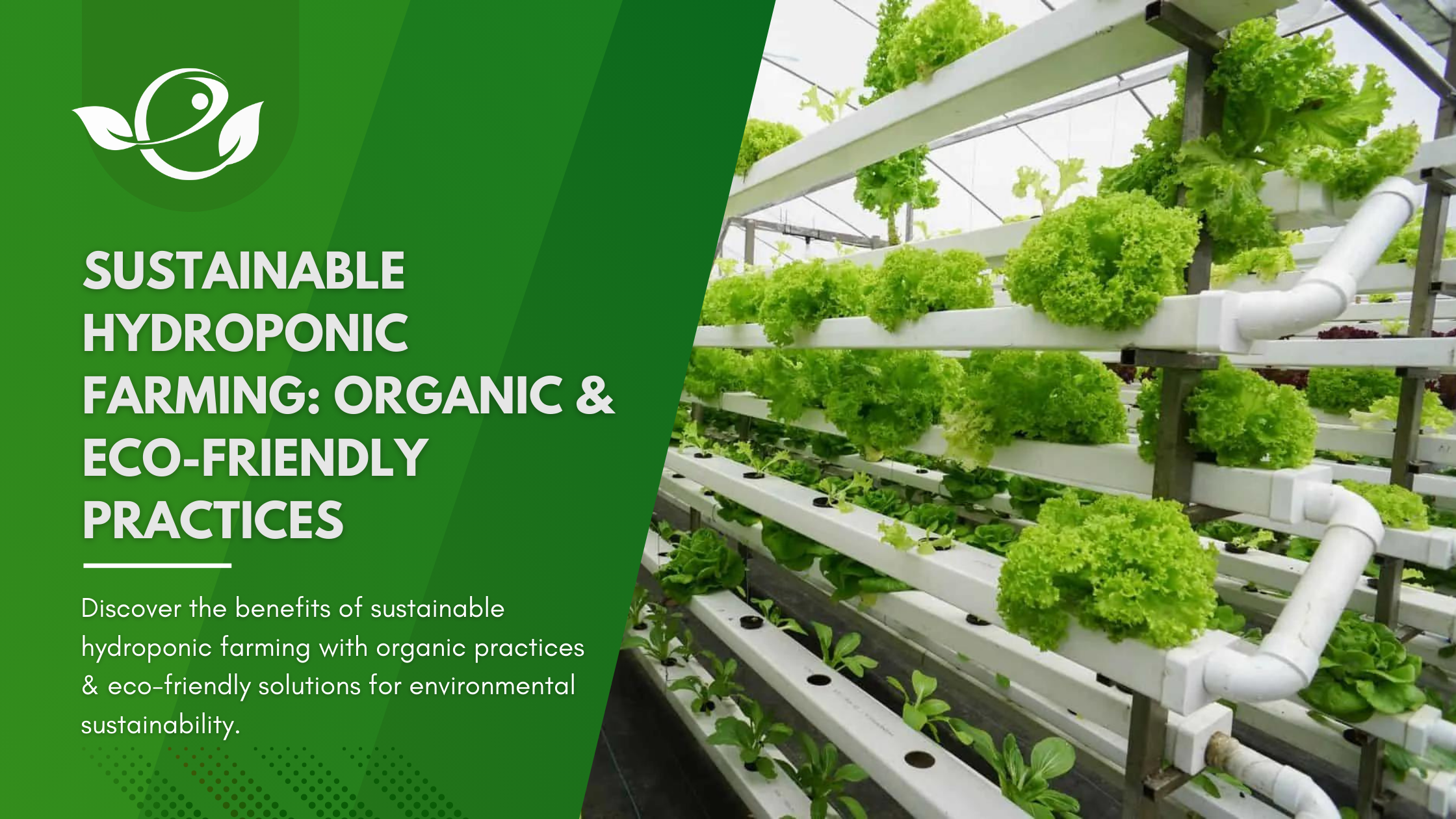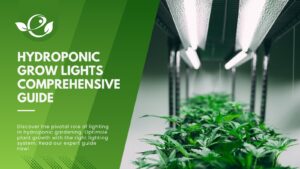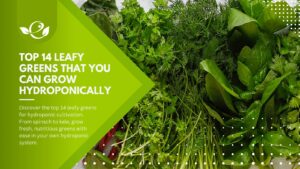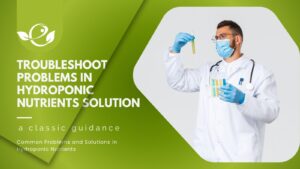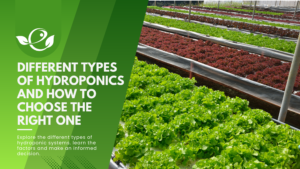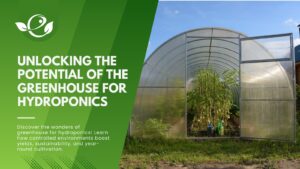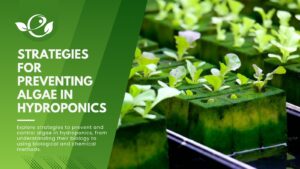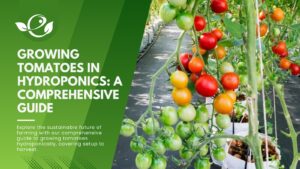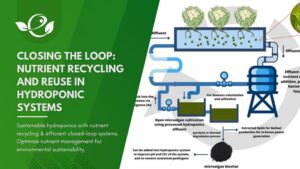Table of Contents
In today’s world, where concerns about environmental sustainability and food security are paramount, the need for innovative agricultural practices has never been greater. Hydroponic farming presents itself as a promising solution, offering a sustainable and efficient alternative to traditional soil-based agriculture. However, to truly maximize its potential, it’s imperative to adopt organic and eco-friendly practices within the realm of hydroponics. This article explores the principles, benefits, challenges, and future outlook of organic and eco-friendly hydroponic farming.
I. Understanding Hydroponics
Hydroponics, derived from the Greek words “hydro” (water) and “ponos” (labour), is a method of growing plants without soil, using nutrient-rich water solutions instead. This innovative approach allows for precise control over factors such as nutrient levels, pH balance, and water usage, resulting in higher yields and faster growth rates compared to traditional farming methods. There are several types of hydroponic systems, including Nutrient Film Technique (NFT), Deep Water Culture (DWC), Ebb and Flow, and Aeroponics, each with its own set of advantages and applications.
II. Organic Hydroponic Farming: Principles and Practices
A. Defining organic hydroponics
Organic hydroponics involves the cultivation of plants using hydroponic techniques while adhering to organic farming principles. It emphasizes the use of natural, organic inputs to nourish plants, promote soil health, and minimize environmental impact.
B. Advantages of organic hydroponics
Contrary to misconceptions, organic hydroponics offers several advantages. Firstly, it reduces reliance on synthetic chemicals, thereby minimizing chemical runoff and soil contamination. Secondly, organic hydroponic produce tends to have higher nutrient content and superior taste due to the natural, balanced nutrition provided to plants. Finally, organic hydroponic systems can enhance ecosystem resilience by fostering biodiversity and beneficial microbial activity.
C. Challenges and misconceptions
One common misconception is that hydroponic farming cannot be organic. However, organic hydroponics is entirely feasible and aligns with organic farming principles. Challenges include sourcing organic nutrients, managing pests and diseases without synthetic chemicals, and ensuring regulatory compliance for organic certification.
D. Key principles of organic hydroponic farming
- Using organic nutrients: Organic hydroponic systems utilize organic fertilizers derived from natural sources such as compost, seaweed extracts, and fish emulsions, ensuring plants receive essential nutrients without synthetic additives.
- Maintaining a balanced ecosystem: Organic hydroponic farms strive to mimic natural ecosystems, fostering biodiversity by incorporating beneficial organisms like mycorrhizal fungi and beneficial bacteria to promote plant health and nutrient cycling.
- Pest and disease management without synthetic chemicals: Integrated Pest Management (IPM) techniques are employed to control pests and diseases, including biological controls, physical barriers, and cultural practices, minimizing reliance on synthetic pesticides.
E. Case studies of successful organic hydroponic farms
Examples of successful organic hydroponic farms highlight the viability and effectiveness of this approach. These farms demonstrate sustainable practices such as closed-loop nutrient systems, companion planting to deter pests, and innovative pest management strategies using biological controls.
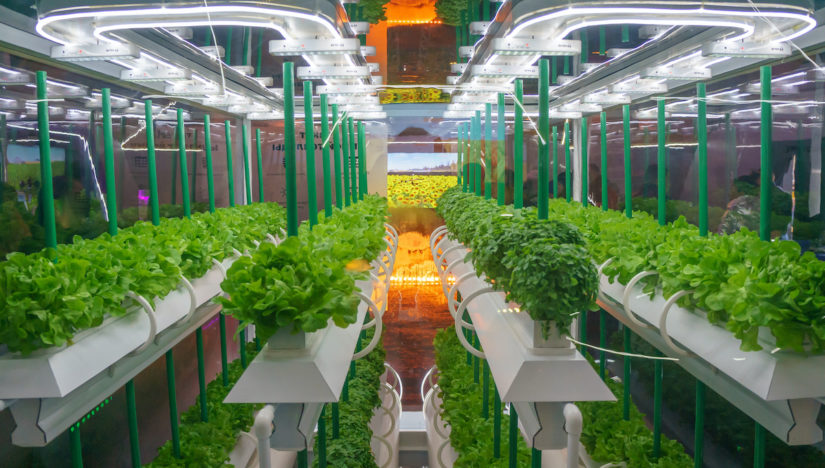
III. Eco-Friendly Hydroponic Practices
A. Importance of sustainability in hydroponics
Sustainability is integral to the future of hydroponics, given its potential to address global food security challenges while minimizing environmental impact. Eco-friendly hydroponic practices prioritize resource efficiency, waste reduction, and environmental stewardship.
B. Energy-efficient lighting solutions
The adoption of energy-efficient lighting solutions, such as Light Emitting Diodes (LEDs), reduces electricity consumption and minimizes heat generation, leading to lower operational costs and reduced carbon footprint.
C. Water conservation techniques
Water scarcity is a pressing issue in agriculture, making water conservation paramount in hydroponic farming. Techniques such as recirculating nutrient solutions, capturing rainwater, and implementing drip irrigation systems maximize water efficiency and minimize waste.
D. Recycling and waste reduction strategies
Eco-friendly hydroponic systems emphasize recycling and waste reduction. Organic waste can be composted and used to enrich growing media, while water and nutrient solutions can be recirculated to minimize discharge and nutrient runoff.
E. Incorporating renewable energy sources
Integrating renewable energy sources such as solar panels and wind turbines into hydroponic facilities reduces reliance on fossil fuels and decreases greenhouse gas emissions. These sustainable energy solutions contribute to the overall eco-friendliness of hydroponic operations.
By implementing these eco-friendly practices, hydroponic farmers can minimize environmental impact, conserve resources, and contribute to a more sustainable future for agriculture.
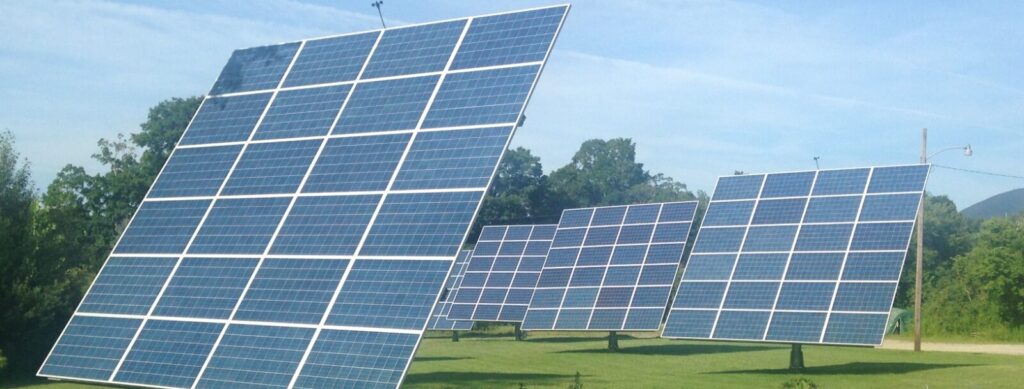
IV. Overcoming Challenges and Addressing Concerns
While hydroponics offers numerous benefits, there are also challenges and concerns that must be addressed.
A. Perceived drawbacks of hydroponics
Addressing common criticisms and misconceptions about hydroponic farming, such as its perceived lack of natural complexity and reliance on technology.
B. Addressing energy consumption concerns
Discussing strategies for optimizing energy usage within hydroponic systems, such as implementing energy-efficient equipment and utilizing renewable energy sources, to minimize environmental impact and operational costs.
C. Ensuring nutrient balance and avoiding contamination
Exploring methods for maintaining nutrient balance and preventing contamination within hydroponic systems, such as regular monitoring and testing of nutrient solutions, to ensure plant health and food safety.
D. Addressing scepticism regarding organic hydroponics
Responding to scepticism and doubts surrounding the feasibility and effectiveness of organic hydroponic farming, citing evidence and case studies that demonstrate its viability and benefits.
E. Regulatory considerations and certifications
Discussing regulatory considerations and certification programs for organic and eco-friendly hydroponic farming, highlighting the importance of adherence to standards and guidelines to ensure consumer trust and market access.
V. Economic Viability and Market Trends
From an economic perspective, organic and eco-friendly hydroponic farming presents significant opportunities for growth and investment.
A. Economic benefits of organic and eco-friendly hydroponics
Examining the economic benefits of organic and eco-friendly hydroponic farming, including potential cost savings, higher market prices for sustainably grown produce, and increased market demand for organic products.
B. Market demand for sustainable produce
Analyzing consumer trends and market demand for sustainably grown produce, particularly organic fruits, vegetables, and herbs, and the role hydroponics can play in meeting these demands.
C. Investment opportunities in the hydroponics industry
Identifying investment opportunities in the hydroponics industry, such as funding for research and development, infrastructure development, and expansion of hydroponic farming operations.
D. Future projections and growth potential
Discussing future projections and growth potential for the hydroponics industry, considering factors such as technological advancements, changing consumer preferences, and global environmental challenges.
VI. Social Impact and Community Engagement
Beyond its environmental and economic benefits, hydroponic farming has the potential to make a positive social impact by promoting local food production, supporting food security initiatives, and engaging communities in sustainable agriculture.
A. Promoting local food production and food security
Exploring the role of hydroponic farming in promoting local food production and enhancing food security, particularly in urban areas and regions with limited access to fresh produce.
B. Educational initiatives on sustainable farming practices
Highlighting the importance of educational initiatives and outreach programs on sustainable farming practices, including hydroponics, to empower individuals and communities to make informed choices about their food and lifestyle.
C. Supporting disadvantaged communities through hydroponic farming
Discussing initiatives and programs aimed at supporting disadvantaged communities through hydroponic farming, such as community gardens, vocational training, and job creation opportunities.
D. Collaborations with local organizations and schools
Exploring collaborations and partnerships between hydroponic farmers, local organizations, and schools to promote community engagement, knowledge sharing, and hands-on learning.
VII. Conclusion
In conclusion, organic and eco-friendly hydroponic farming represents a promising pathway towards sustainable agriculture and food production. By embracing organic principles, adopting eco-friendly practices, and addressing challenges and concerns, hydroponic farmers can contribute to environmental conservation, economic development, and community resilience. As we continue to confront the challenges of climate change, resource depletion, and food insecurity, the need for innovative and sustainable solutions like hydroponics has never been greater. By working together and harnessing the power of technology, science, and community engagement, we can create a future where growth truly comes with a conscience.
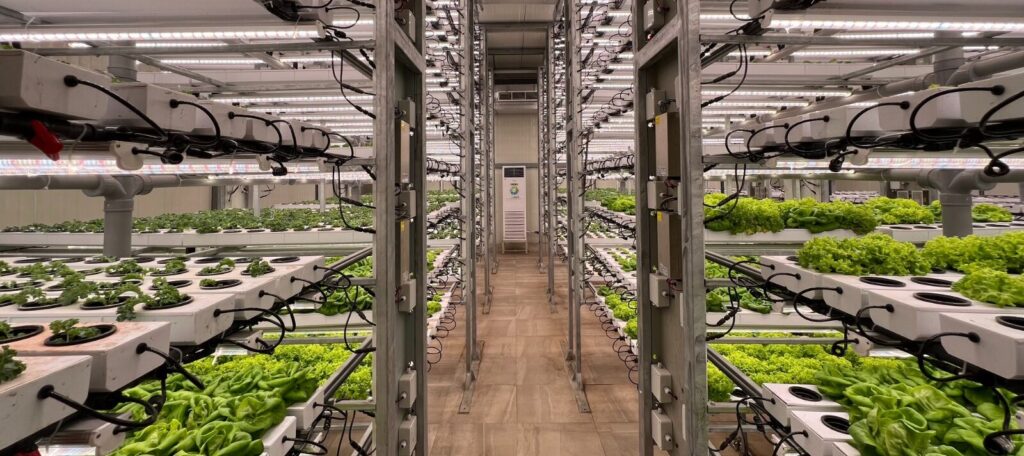
Frequently Asked Questions (FAQs)
1: Can hydroponic farming be considered organic?
Yes, hydroponic farming can be organic. Organic hydroponics involves the cultivation of plants using hydroponic techniques while adhering to organic farming principles. It emphasizes the use of natural, organic inputs to nourish plants, promote soil health, and minimize environmental impact.
2: What are the benefits of organic hydroponics?
Organic hydroponics offers several advantages. Firstly, it reduces reliance on synthetic chemicals, thereby minimizing chemical runoff and soil contamination. Secondly, organic hydroponic produce tends to have higher nutrient content and superior taste due to the natural, balanced nutrition provided to plants. Finally, organic hydroponic systems can enhance ecosystem resilience by fostering biodiversity and beneficial microbial activity.
3: How do you manage pests and diseases in organic hydroponics?
Pest and disease management in organic hydroponics are achieved through Integrated Pest Management (IPM) techniques. These include biological controls, such as introducing beneficial insects, physical barriers, such as row covers, and cultural practices, such as crop rotation and companion planting.
4: Are hydroponic systems environmentally sustainable?
Hydroponic systems have the potential to be environmentally sustainable when implemented with eco-friendly practices. These include using energy-efficient lighting solutions, conserving water through techniques like recirculating nutrient solutions, reducing waste through recycling and composting, and incorporating renewable energy sources such as solar power.
6: Is hydroponic farming economically viable?
Yes, hydroponic farming can be economically viable, especially when implemented with organic and eco-friendly practices. While initial setup costs may be higher than traditional farming methods, hydroponic systems can produce higher yields in less space and with fewer resources.
7: Can hydroponic farming contribute to food security?
Yes, hydroponic farming has the potential to contribute to food security by enabling year-round production of fresh fruits, vegetables, and herbs in diverse environments. Its efficient use of resources, ability to produce high yields in limited space, and reduced dependency on soil make it particularly suitable for urban areas and regions with limited arable land. By providing locally grown, nutritious produce, hydroponic farming can enhance food access and security for communities.
